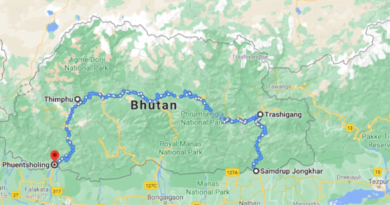Atmosphere & Climate Research-Modelling Observing Systems & Services (ACROSS)
Context:
Cabinet approves Continuation of the umbrella scheme “Atmosphere & Climate Research-Modelling Observing Systems & Services (ACROSS)” from the 14th Finance Commission to the next Finance Commission Cycle (2021-2026
Contents
About ACROSS:
- The ACROSS scheme pertains to the atmospheric science programs of the Ministry of Earth Sciences (MoES).
- This scheme is a part of the umbrella scheme Atmosphere & Climate .
- It addresses different aspects of weather and climate services, which includes warnings for cyclones, storm surges, heat waves, thunderstorms etc.
- Each of these aspects is incorporated as nine sub-schemes under the umbrella scheme “ACROSS” and is implemented in an integrated.
- The ACROSS scheme consists of nine sub-programmes which are multi disciplinary and multi institutional in nature and will be implemented in an integrated manner.
- As the objective of the ACROSS scheme is to provide a reliable weather and climate forecast for betterment of society, the scheme will aim at improving skill of weather and climate forecast through sustained observations, intensive R & D.
Background:
One of the mandates of the Ministry of Earth Sciences is to observe weather, climate and ocean parameters and carry out R&D activities to develop and improve capability to forecast weather, climate and hazard related phenomena for societal, economic and environmental benefits including addressing science of climate change and developing climate services. The increased incidence of extreme weather events due to Global Climate change and the risk associated with severe weather has prompted MoES to formulate many target oriented programs, which are carried out in an integrated manner through IMD, IITM, NCMRWF and INCOIS. As a result, these activities are put together under the umbrella scheme “ACROSS”.
Objectives
- Develop an Advanced Weather Prediction System for block level forecasts, skilful for next 3-5 days and develop advisories for sectors like Agriculture, Disaster Management, Water resources, Power, Tourism and Pilgrimage, Smart cities, Renewable Energy sector and Transport.
- Setting up of District Agro-Met Units (DAMUs) in all the districts of the country for extension of Agromet Advisory Services (AAS).
- To expand the outreach of weather based Agromet advisories to the 94 million farmers through multiple means of communication, collection of feedback and impact assessment of AAS.
- Develop a state-of-the-Art support system for Aviation safety with the automated Aviation Weather Observing System and advanced forecasting tools for all the civil airports in the country.
- Establishing new Aerodrome MET Offices at Greenfield Airports and setting up of automated Heliport Weather Observing & Transmitting System at Heliports, Landing ground and other strategic locations to support the Helicopter and low level flight operation of Indian Air Force, Indian Army and also at important tourist and pilgrimage locations.
- Establish a state-of-the-art Climate Data Centre with integrated advanced climate data services portal for rendering national and regional climate services. The climate data centre will provide a comprehensive set of improved and specialized climate services for the country through upgradation of the existing operational activities of climate monitoring, climate prediction, climate data management and climate application.
- Provide appropriate climate services to South Asia as WMO recognized Regional Climate Centre (RCC) for the region.
- To upgrade the training infrastructure and facilities to enhance the capacity of the training establishment to bear increased loads of long term ab-initio training courses for new entrants, career progression courses and short term courses in specialized topics, training to the personnel from countries.
- Contributions among WMO, Regional Integrated Multi-Hazard Early Warning System for Africa and Asia (RIMES)/ Economic and Social Commission for Asia and the Pacific (ESCAP)/ Global Framework for Climate Services (GFCS) in South Asia etc.
Significance of the Scheme:
- ·The scheme will provide improved weather, climate and ocean forecast and services, thereby ensuring transfer of commensurate benefits to the various services.
- It will also provide a sizable number of scientific and technical staff along with requisite administrative support, thereby generating employment.
- To ensure last-mile connectivity of the weather based services to the end -user, a large number of agencies like the KrishiVigyanaKendras of Indian Council of Agricultural Research, Universities and local municipalities are roped in thus generating employment opportunities to many people.
Major components of the scheme
- Gramin Krishi Mausam Sewa (Agrometeorological Advisory Services)
- Augmentation of Aviation Meteorological Services
- Climate Services
- Training in Operational Meteorology
- Capacity Building
Implementation Strategy and target:
The eight sub-schemes under the ACROSS scheme are multi disciplinary in nature and will be implemented in an integrated manner through IMD, IITM, NCMRWF and INCOIS to cover all the aspects of the weather and climate. Each institute has a designated role for accomplishing the above tasks through the following eight schemes:
- Commissioning of Polarimetric Doppler Weather Radars (DWRs)-IMD
- Upgradation of Forecast System-IMD
- Weather & Climate Services-IMD
- Atmospheric Observations Network-1 MD
- Numerical Modelling of Weather and Climate -NCMRWF
- Monsoon Mission III- IITM/NCMRWF/INCOIS/IMD
- (vii) Monsoon Convection, Clouds and Climate Change (MC4)- IITM/NCMRWF/IMD
- High Performance Computing System (HPCS)-IITM/NCMRWF
Major impact including employment generation potential
The scheme will provide improved weather, climate, ocean forecast and services, and other hazard related services thereby ensuring transfer of commensurate benefits to the end -user through various services like Public weather service, Agro-meteorological Services, Aviation services, Environmental monitoring services, Hydro-meteorological services, climate services, tourism, pilgrimage, power generation, water management, Sports & adventure etc. The whole process from generation of forecast to its delivery requires considerable manpower at every stage, thereby generating employment opportunities to many people.
Source: PIB
You can find many articles related to SCHEMES (part of GS II) in our website. Go through these articles share with your friends and post your views in comment section.
Discover more from Simplified UPSC
Subscribe to get the latest posts sent to your email.



